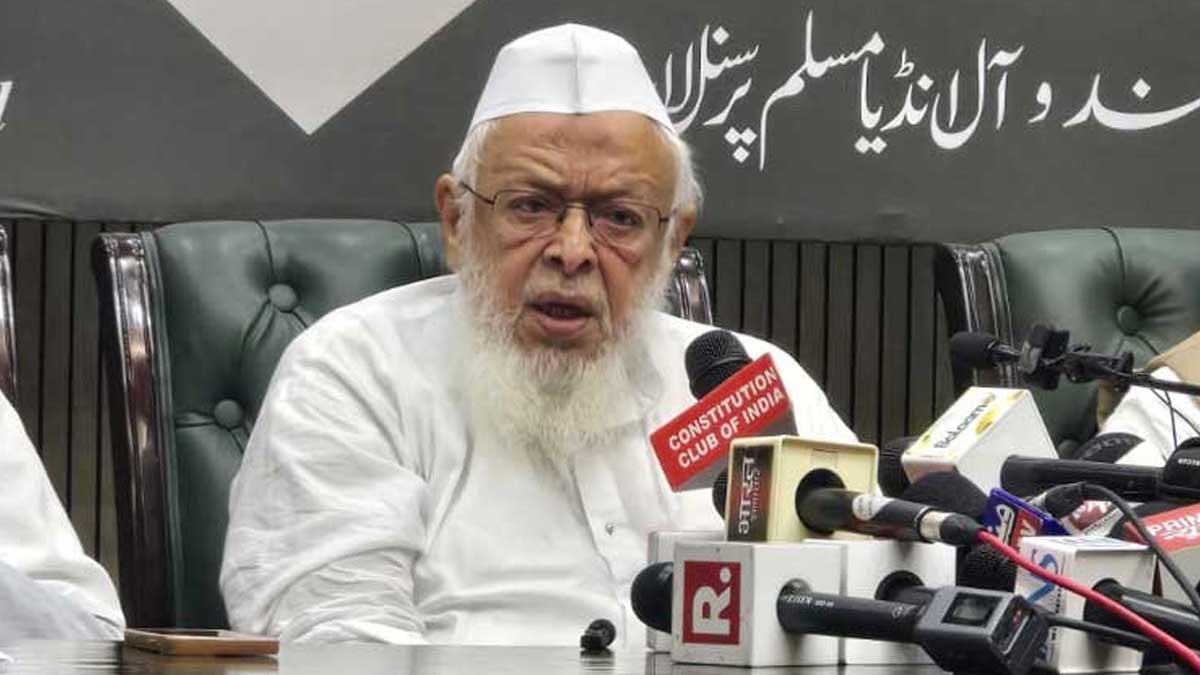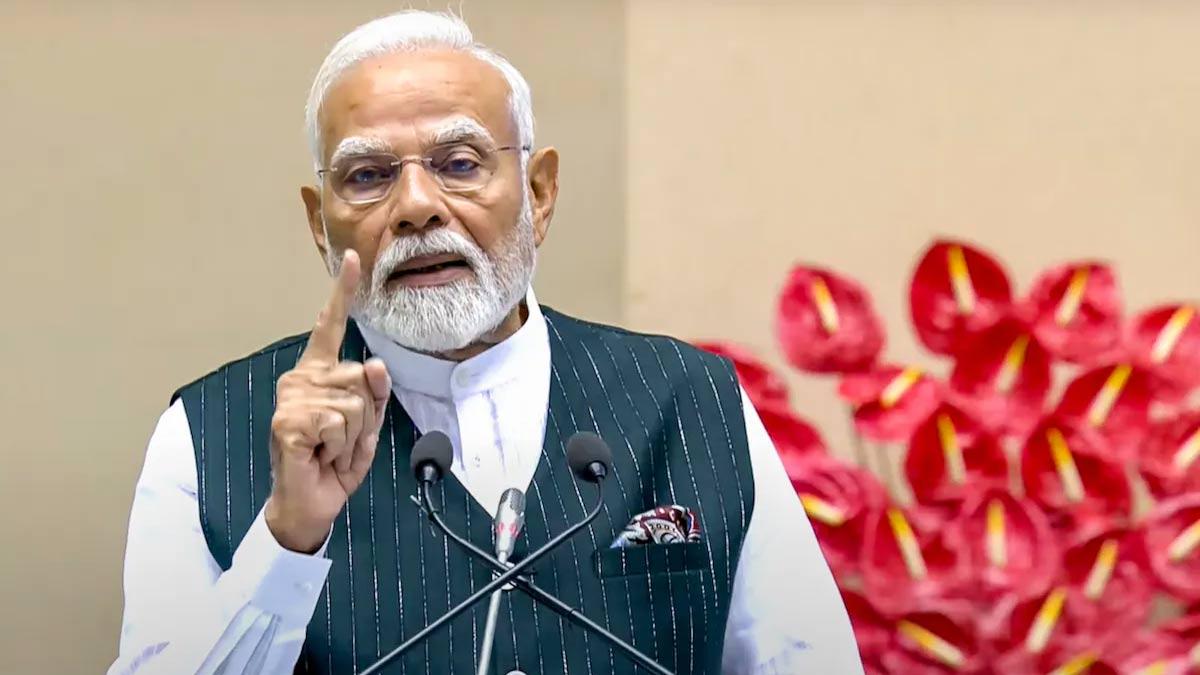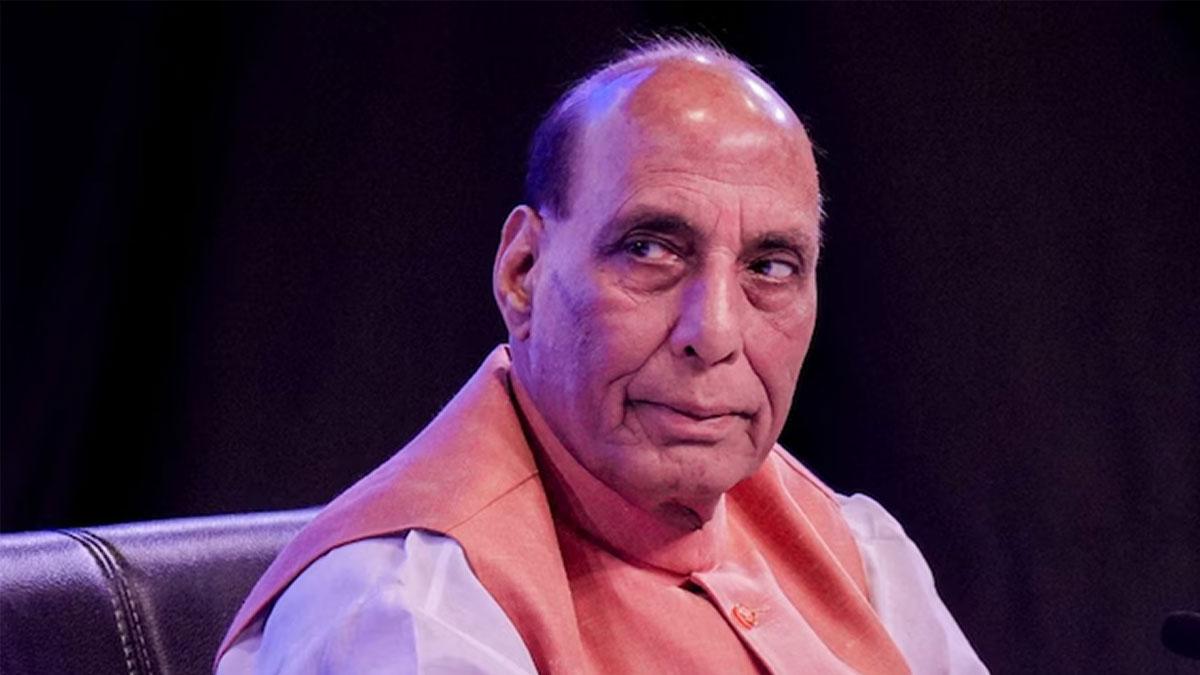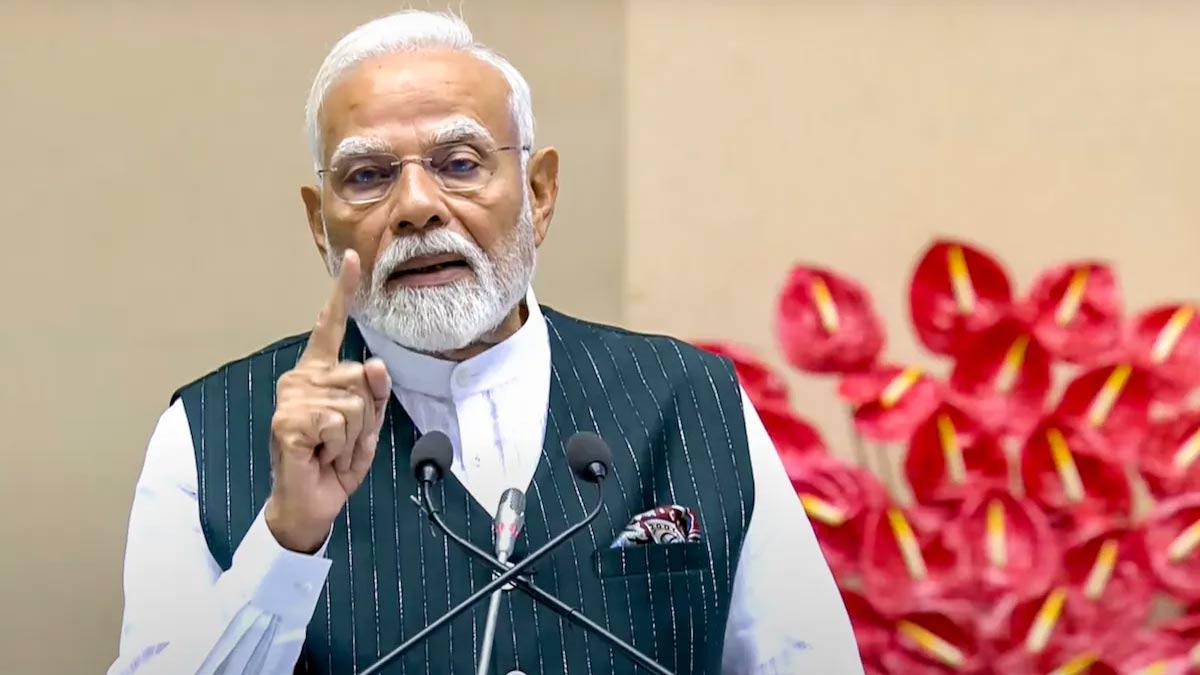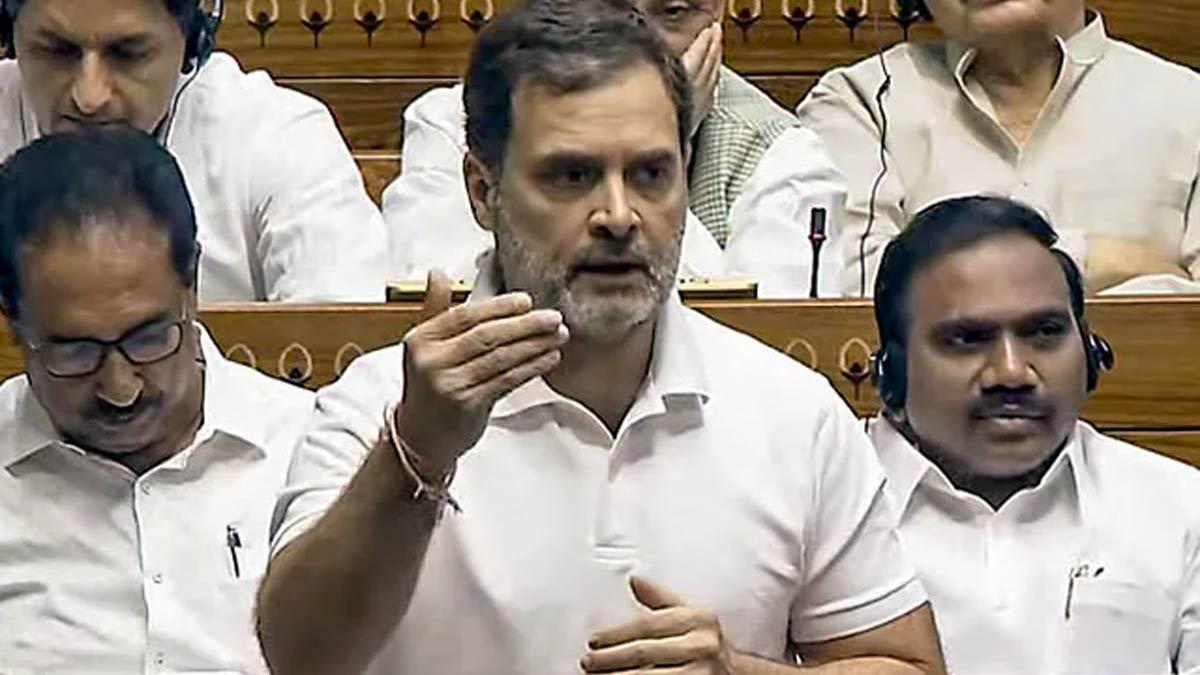The Muslim organization expressed strong disapproval of the Union government's Waqf Amendment Bill 2024 on Thursday, labeling it as unconstitutional, undemocratic, and unjust. They argued that the bill infringes upon the constitutional right to freedom of religion.
“Amendment bill being brought to Waqf is unconstitutional, undemocratic and unfair. The proposed amendments to the Waqf Act are also against the freedom of religion provided by the Constitution and also violates articles 14-15 and 25 of the Constitution,” stated Maulana Arshad Madani, President of Jamiat-i-Ulama Hind, during a joint press conference with the Muslim Personal Law Board at the Constitution Club in New Delhi.
He further claimed that this bill represents governmental interference in religious matters, which the Muslim community will not accept.
“Under the guise of the amending bill, an attempt is being made to deprive the Muslims of this great country and of its heritage which our forefathers have left in the form of Waqf for the betterment of the poor, destitute and needy people of the country,” said Maulana Arshad Madani.
He noted that the amendments were made without consulting Muslim religious leaders or gaining the community's trust, emphasizing that Waqf is a religious and Shariah issue. Once Waqf is established, the donor relinquishes ownership of the property, transferring it to the ownership of Allah.
“The donor does not remain the owner of the property rather that property is transferred to the ownership of Allah,” he explained.
While discussing the bill's introduction in Parliament, Maulana Madani remarked that it was claimed to promote transparency and benefit vulnerable members of the Muslim community.
“This bill is proof of the malicious intent of the government and its dangerous plans. If this bill is passed not only the protection of Waqf properties across the country may be in danger but also a door of new conflicts will be opened and the status of those mosques, tombs, buildings, imam badas and lands which are Waqf properties or which are located on Waqf land will be made doubtful,” Maulana Madani said.
He criticized the bill's provision to transfer powers from the Waqf Tribunal and Waqf Commissioners to District Collectors, indicating a significant shift in governance.
“By increasing the number of members of the Central Waqf Council and Waqf Boards, their status is also being changed and the door is being opened to appoint non-Muslims in it as well. This bill will also remove the requirement of being Muslim for officers and members,” he said.
Maulana Madani emphasized that this issue transcends religious boundaries, presenting itself as a constitutional challenge that undermines Muslim religious freedoms.
He cited the Shrine Board, established to protect Hindu religious sites, which explicitly states that members cannot be Jains, Sikhs, or Buddhists.
He questioned the rationale behind allowing non-Muslims to be nominated and appointed to the Waqf Board if Jains, Sikhs, and Buddhists are excluded from the Shrine Board, even though they are considered separate sects within Hinduism.
Maulana Madani highlighted existing laws in states like Uttar Pradesh, Kerala, Karnataka, Tamil Nadu, and Andhra Pradesh that stipulate that those managing Hindu religious properties must be Hindus.
“While Jainism and Buddhism are not considered separate from Hinduism, they are considered a separate sect. If they cannot participate in the shrine board even if they are Hindus on the basis of being a sect, then why is the nomination and appointment of non-Muslims in the Waqf boards made mandatory?” Maulana Madani asked.
He asserted that the government's intentions are not genuine and that the bill does not aim to bring about transparency or benefit the Muslim community. Instead, it seeks to strip Muslims of their Waqf properties and undermine their claims to these assets.
Maulana Madani warned that this could instigate a cycle of new conflicts, as the weakened legal status of Muslims under the amendment bill could facilitate the occupation of Waqf properties.
He underscored that the majority of the proposed amendments in the bill are unconstitutional, posing a dangerous threat to the Waqf system.
“This bill is also an attack on the constitutional powers given to Muslims. If the Constitution has given religious freedom and equal rights to every citizen then some special powers have also been given to the minorities living in the country. And the amendment bill negates all these powers completely,” he said.
He further pointed out that the Waqf Amendment Bill 2024 suggests the removal of Section 40 from the current Act, despite the findings of the 2006 Joint Parliamentary Committee on Waqf and the Justice Sachar Committee, which reported widespread illegal occupation of Waqf properties. Ironically, the current government references this same Sachar Committee report.
“Despite this, it has been suggested in the 2024 bill that the State Waqf Board shall not be empowered to identify properties which are illegally occupied and to try to recover them. This proposal of the government is very harmful to the existence of endowments,” he said.
Maulana Madani concluded by expressing concern that over the past decade, minorities, particularly Muslims, have been marginalized, leading to the perception that they possess no rights or powers as citizens.
He condemned the numerous laws enacted to reinforce this narrative, stating, “This Waqf Amendment Bill is also one of them by passing it in any way there is a conspiracy to forcefully apply it on Muslims, which we cannot accept,” he said.
Read also | Nitish Kumar Urges Officials to Expedite Completion of Muzaffarpur Bypass Road

